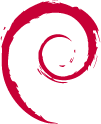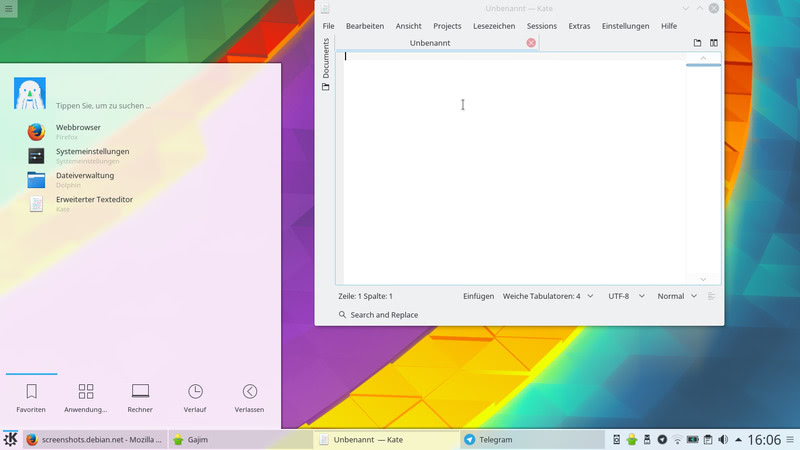Debian
Debian - The Universal Operating System is an independently developed GNU/Linux distribution. Debian is probably the largest operating system in terms of the number of packages, contributors and the number of distributions derived from it.
The Debian project was started in August 1993 by Ian Murdock. The main idea objective behind the Debian is to create a free operating system following the principles of GNU and Linux. Debian started as a small, tightly knit group of Free Software hackers and gradually evolved to a large, well-organized community of developers and users.
Debian works as a parent for many GNU/Linux distribution, including Ubuntu. The operating systems inheriting from Debian enjoys large collection of packages from the Debian reposistories.
There are three well known version of Debian.
- Stable: The latest officially released Debian with thoroughly tested packages. This release is for people and groups who looks for extreme stability.
- Testing: Release with packages which are in testing. The packages in this release are under testing, and is in queue to become stable.
- Unstable - The development branch of Debian where the active development take place. It is for people who looks for bleeding edge distribution. Debian unstable is always known by the code name Sid.
| Status | Active |
| Home Page | https://www.debian.org |
| Page Hit Rank (rank/views) | 23(8 hits per month) |
| Base distributions |
|
| Desktop Envrionments | |
| Distributions based on Debian |
|
| Releases | |
| Screenshots |
Other stories on Debian
- Debian 13 'Trixie' Released with Major Updates and New Architecture Support
- SpiralLinux 12.231001 Release: User friendly Debian-Based Linux
- LMDE 6 Faye released with Debian 12 Bookworm updates
- Debian 12 Bookworm released
- Debian 11 Bullseye released
- Debian 10 'buster' released, see screenshots
- Debian 9.6 fixes several security loopholes and critical issues
- Debian 9 Stretch installer rc1 released
- Debian 8.7 released with critical security fixes


What do you think about Debian?